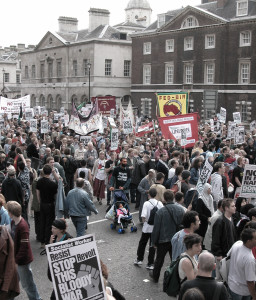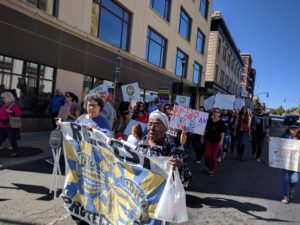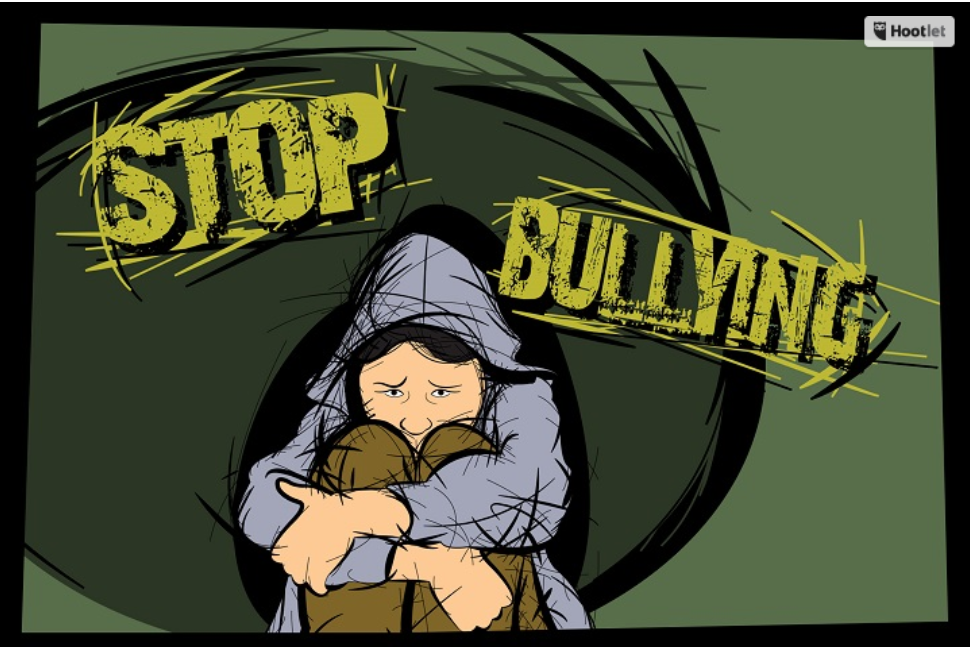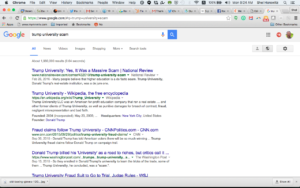C, J, H: My Three “Brogan Words” for 2020, Part 2
Every year, bestselling author and social media visionary Chris Brogan challenges his huge reader base to come up with three words to provide focus for the coming year. This year, I decided to take the challenge for the first time since 2016. My three words are:
- Clarity (click to read Part 1, where I discuss this word)
- Justice
- Healing
Justice

Today’s installment is about Justice, and how it shapes both my career and my activism.
My career has evolved quite a bit from its founding (as a term-paper typing service!) in 1981. For the past several years, I’ve focused my writing, speaking, and consulting on helping business turn hunger and poverty into abundance, war into peace, and catastrophic climate change into planetary balance. By showing companies how to make a profit doing this, I hope to leverage far greater change than I would if I tried to motivate them through guilt, shame, and fear.
Lets make this concrete: I listed several benefits for each of five different examples in this blog post.
Ready to know more? In the very early phases of this shift in my business, I did a TEDx talk, “Impossible is a Dare.” (you have to click on “Event Videos”, and then on my talk). It’s a nice 15-minute introduction to this idea as it existed in 2014; I’ve refined it quite a bit since then. A much deeper introduction is my 10th book, Guerrilla Marketing to Heal the World, endorsed by Chris, Seth Godin, Chicken Soup;’s Jack Canfield, Joel Makower (Executive Director of GreenBiz.com) and many other business and environmental leaders. And of course, I’m happy to talk to you about how I can be a “Sherpa” on this journey for your organization.
But now, let’s go back to the activist side. In order to talk about Justice, I also have to talk about Injustice: what we’re trying to change.
And from there, how I personally am working to change injustice into justice through community-based activism: the work I do in my non-career time. There have been a few times in my life where that work dominated my day and pushed the career part off to the side. This is one of those times.

As a citizen of the US, I’m deeply concerned about the attack on our planet and its people (and other living beings) by the current federal government. This government and its most visible spokesperson have viciously attacked immigrants, people of color, people without a Y chromosome (not male, in other words) or who don’t identify with the gender of their birth or any gender, people who are not Christian or even Christians who condemn him, people with disabilities, people suffering in poverty who face attacks on safety-net programs such as SNAP benefits (formerly known as food stamps) as well as authoritarian responses to homelessness, people who’ve survived crimes this government doesn’t view as important (such as sexual harassment), and even 16-year-old climate activist Greta Thunberg–as well as people who might be likely to vote for someone other than that very visible spokesperson.
Humans, at least, can defend themselves. Forests, oceans, the air we breathe, the water we drink, the plants and animals that we share our planet with–they need human beings to defend them against the brutal attack by this administration. Since January 2017, this government has rolled back dozens of environmental protections, stripped government websites of information about issues from the human impact on climate change to toxic pollution databases, barred government scientists from speaking out, and of course, pulled the US out of the Paris climate accord.
As of October, 2019, that same visible spokesperson had lied at least 13,435 times while in office. He has violated his Oath of Office every single day since he was sworn in, because he refused to divest himself of emolument-laden business interests and thus undermines the Constitution; he illegally uses his position for personal enrichment. He even went so far as to order the next G7 Summit held at his own golf resort (public pressure forced him to walk this one back; even Fox raised an eyebrow). And of course, there were the two violations so egregious that they led to his impeachment. I would have preferred a much fuller bill of criminal activity (this link lists nine potential counts as far back as July, 2018).
But the problem goes far deeper than one corrupt and mean-spirited individual in a position of great power.
As a citizen not just of the US but also of the world, I worry to see similar patterns repeating in many other countries, among them Brazil, Hungary, India, and Bolivia–and less intense versions attempting to rear their heads in places like France and UK.
I’ve been an environmental and social justice activist since October, 1969. That’s just over 50 years. Since that time, I’ve done much to improve the lives of my fellow residents of Earth, whether human, other animal, plant, fungus, or other lifeforms. I’ve been involved in numerous campaigns, and was glad to play a role in winning some of them. But there’s so much more to be done!
Each of these situations involves many cases of justice denied. I will do what I can to turn that around; I will continue to write and speak and act and organize and demonstrate and lobby from a place that says we are better than this, that we don’t accept this as normal, and that we are not willing to turn the clock all the way back to 1930s Germany. And I will continue to take comfort in the small victories we win, and the many friends I have made in the Resistance who prove to me that we are, indeed, better than this.
And each of us has an impact, often far greater than we realize at the time. Never accept that you cannot make a difference as an individual! But recognize that it’s easier to make that difference if you work with others.
I can take direct credit for victories ranging from a crosswalk at an intersection that desperately need one to starting the movement that saved a mountain when the “experts” thought our victory was impossible. And I’m far from done.
In May, 2019, my wife and I were accepted as sanctuary accompaniment volunteers, helping protect an upstanding immigrant who has to live in a church because he would be deported if caught outside the grounds. This is a hard-working man who just wants to provide for his family, including three children born in this country. He has lived in the US for nearly two decades, and in the church for more than two years.
A month later, we participated in an eight-person delegation to stand witness outside the prison holding up to 3000 migrant teenagers in Homestead, Florida. That prison, like the far worse one in Tornillio, Texas, was closed due to public outcry. The affinity group we went with is called Jewish Activists for Immigration Justice of Western Massachusetts. In February, we will be part of a ten-member JAIJ delegation doing relief work on the border at Brownsville, Texas and Mataoros, Mexico. Despite our tiny numbers, we’ve had a lot of influence, because we’ve been doing talkbacks, media interviews, and multiple public events since our return from Florida, and we’ve raised thousands of dollars to support the relief mission.
As in all my environmental and social work these 50 years, I hope to see my work become obsolete and unnecessary, because the problem has been fixed.
I dedicate my 2020 work for justice to the spirit of Frances Crowe, of Northampton, Massachusetts. She requested, for her 100th birthday, a demonstration with 100 signs representing 100 causes. She got 300 people marching in the streets, and I think she got her 100 causes, too. A few months later, she attended one of our public talks about the Homestead Detention Center just two weeks before she died. She was working on a climate scorecard for individuals to observe and improve their behavior at the time of her death.
I first met Frances at one of those actions that turned out later to have made a huge difference. She and I were both among the 1414 people arrested in 1977 while occupying the construction site of the Seabrook nuclear power plant, in New Hampshire. She was 58; I was 20, and I didn’t have a leadership role. When we got out, we discovered we’d birthed a nationwide safe-energy movement.
Part 3, on why I chose “Healing” for my third word, went live on January 20. Please leave your own three words (or any other appropriate comment) in the comments. Note that they are moderated, so don’t bother spamming.




